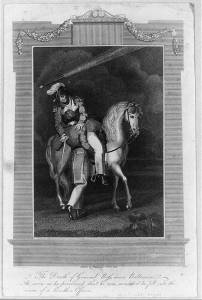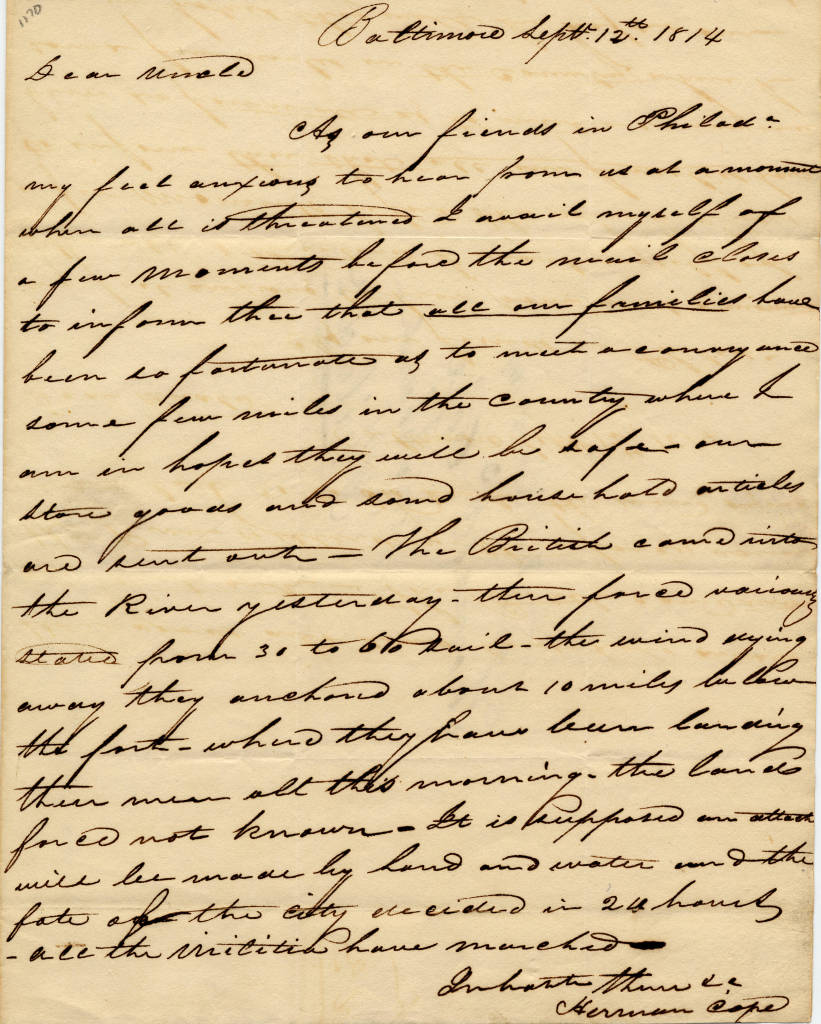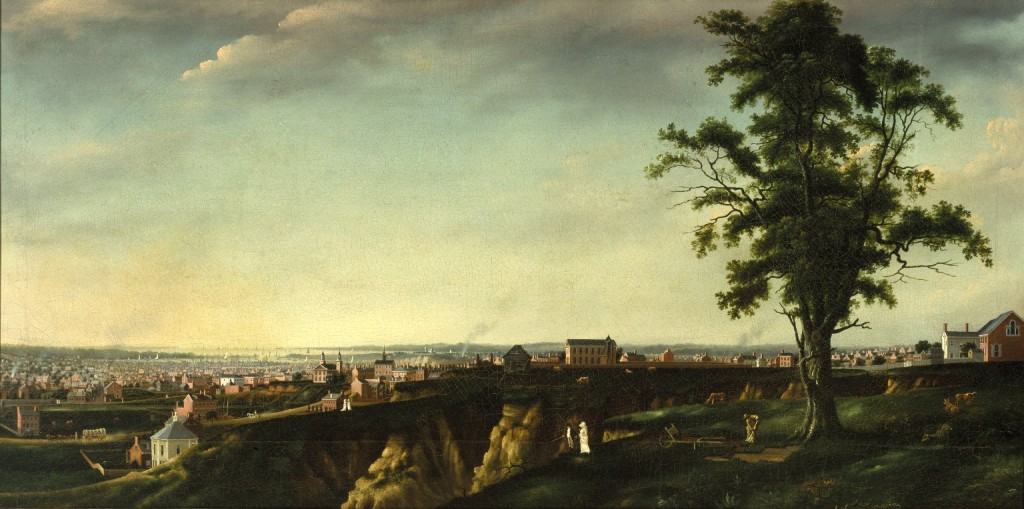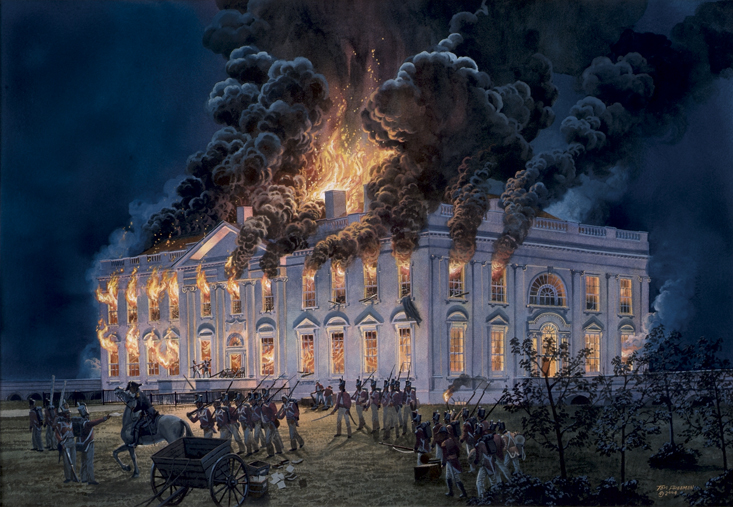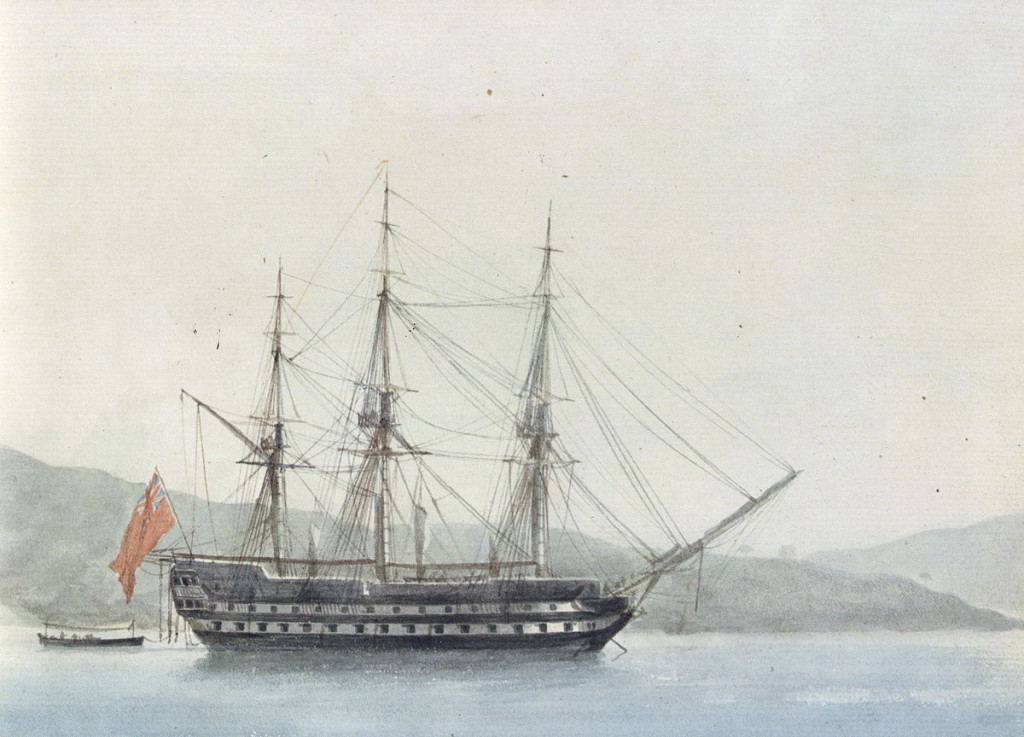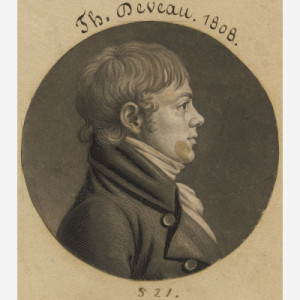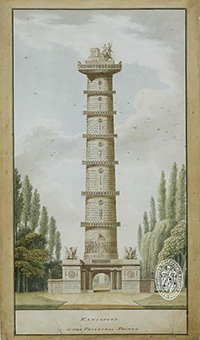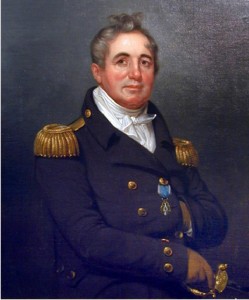On May 11, 1814, Joshua Barney wrote to Secretary of the Navy William Jones with remarks on the challenges of keeping bread dry on board leaking boats and caring for sick sailors. News of Admiral Alexander Cochrane’s proclamation on April 2, encouraging enslaved people to escape from bondage and join the British forces, had clearly spread. In his letter, Barney shares reports of hundreds of black people who (with some assistance from the British raids on coastal communities) had already arrived at Tangier Island.
Baltimore May 11th 1814
Sir,
Since mine of the 4th Instant from Patuxent, I have been with the flotilla to Potomac, where I remained part of Sunday & Monday last.
I sent into St. Mary’s to obtain information of the Asp but without effect, I then concluded to send my “look-out-boat” up the Potomac to join her if possible, and to remain with her until she got up the Bay.
Previous to my leaving Patuxent I sent Gunboat 137 to Baltimore for Provisions with orders to follow me down to Patuxent; when at Potomac I found my provisions nearly expended I determined to run up the bay in hopes of meeting the Gunboat, knowing that so long as the wind was from the Southward she could not get down, nor could I get up with the flotilla with the wind from the Northward; on my arrival in Patuxent I found she was not there, which compelled me to proceed further up, and yesterday I met her just below Annapolis, the Weather being bad I continued up and arrived here at 5 PM, which was very lucky as we have had a terrible night.
On examining the Bread put onboard the Gun-boat I found a great quantity has been wet by leaks in her deck, which Obliges me to take everything out and to have her caulked, before she can serve again; indeed Sir, she and No. 138 are both such miserable tools I do not know what to do with them, they cannot carry anything more than their own Armament, as 3500 lb. Bread [filled] bags filled her, the salt provision on deck where their men were obliged to sleep, and they sail so bad, that I am afraid to trust them out of my sight ahead or astern. I had to take everything out of the Barges of the 2d Class, even their shot (except 15 rounds) and put it into the large boats; In going down, and whilst laying off point look out at anchor, I was very near losing them, as they took in great quantities of Water; to remedy which, I have concluded to have Wash-boards put round them about 8 Inches high, which will keep out the water and of course make them more safe, I am Obliged to do this as the men are very unwilling to remain in them in their present state;
Could I have a vessel to carry provisions, to receive the Sick, and to put the Doctor and his Medicines on-board, it would be a great relief, as I found great Inconvenience respecting the sick when down, as there is no place on board the Barges for them, and the exposed situation of the men, causes sickness, more or less daily, indeed we must expect 20 or 30 always on the list, out of Six hundred men, in such a service, of this you can judge as well as myself.
The Enemy left the Potomac on the 30th Ulto, the last vessel being a large schooner, and carried off upwards of 100 Negroes, onboard the Dragon 74; they now lay at, and about Wats Island in the Tangier sound, and in the Bay below Smiths point. I suppose they got information of the flotilla from the Russian Secretary as we lay in the mouth of Patuxent when the flag went down and she was spoken by my look out boats, (Galley & pilot boat). Mr. Skinner informs me that the Admiral and also the Captain of the Dragon enquired where I was, & said, they had heard of me, they also took a schooner which went with me down as far as Patuxent; I got the same information from a gentleman who had been landed at Point look out, who also says, they have a fort of 17 Guns on Wats Island where they have their sick etc. and about 300 negroes, Men, Women & children, that the Admiral was much onshore fishing and amusing himself.
I shall get ready again without loss of time to proceed down, or as you may direct.
And am with respect your Obt. Servant
Joshua Barney
